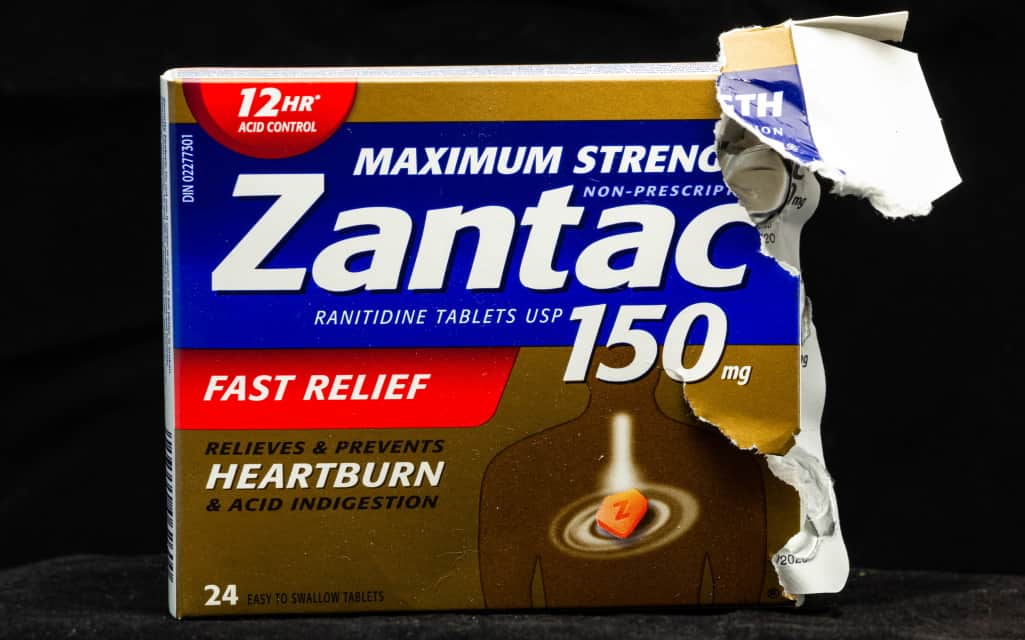Over-the-counter medicines help patients improve, manage, or treat different illnesses. But, it doesn’t mean these drugs aren’t without potential adverse effects. One example is Zantac, a medication to block histamine-2, which would otherwise generate more stomach acid than necessary.
This drug has the potential to help improve conditions wherein the stomach produces too much acid. However, it may promote cancer in some patients as well.
About Zantac
Zantac is the brand name of the generic drug called ranitidine. This medicine helps improve, manage, and treat gut ulcers. Furthermore, it may help prevent these conditions from returning after healing.
Ranitidine may also help improve other health conditions, like gastroesophageal reflux disease (GERD), erosive esophagitis, and the Zollinger-Ellison syndrome. Ranitidine medicines, like Zantac, works by decreasing the acid in the stomach.
If taken with a doctor’s strict prescription, Zantac may return the amount of acid in the gut back to normal. Hence, it may lead to the relief of specific symptoms, such as heartburn, stomach pain, and swallowing difficulties.
But, the question now is, “Is it possible to get cancer from taking Zantac?” The answer to that question is ‘Yes,’ and the US government already issued a recall because of a cancer-causing substance found in its formula.
Ranitidine: A Potential Carcinogen

The US Food & Drug Administration (FDA) already announced to withdraw all over-the-counter and prescription ranitidine drugs, including Zantac, from the market. Retailers were ordered to return these medications to their manufacturers as soon as the announcement went live.
The reason behind this massive recall is because ranitidine can be a potential carcinogen, which is a substance that promotes the formation of cancer cells. Keep in mind that many drugs on the market can potentially produce cancer. But, ranitidine drugs seem to take it to the next level.
The ingredient in question is N-Nitrosodimethylamine (NDMA), which is a hepatotoxin that can cause numerous damages to the body, as per a blog post from Drug Injury News. This compound is an environmental contaminant that tends to be in different products, including water in dairy, meat, and vegetables. Patients might not acquire cancer from Zantac if they only take this particular medicine in low amounts. But, continuous and long-term exposure to this compound may increase the risk of cancer.
Zantac has the potential to cause different cancers, such as:
- Esophageal
- Kidney
- Liver
- Pancreatic
- Ovarian
- Stomach
- Throat/nasal
Furthermore, frequent consumption of this drug may increase your risk of acquiring pneumonia. Consider getting immediate medical help if you experience symptoms like fever, chest pain, and shortness of breath.
Also, the NDMA in ranitidine tends to be a byproduct of other manufacturing processes, including those that develop rocket fuel. Moreover, even trace amounts of NDMA might be extremely toxic to the liver. Consuming small amounts of this compound may also promote liver damage.
If you see Zantac on a store shelf, report your findings to the authorities immediately. This particular drug shouldn’t be on the market as of April 2020. However, you might see some information about ranitidine and other cancer-causing chemicals on leaflets. Some distributors pass these marketing materials around neighborhoods for historical and educational purposes only.
Zantac Lawsuit
If you’ve been taking over-the-counter or prescription Zantac or other ranitidine drugs, stop consuming it immediately. However, if you already acquired health complications because of taking these medicines, you can file for a Zantac lawsuit.
Patients who took this drug that eventually developed cancer or other health issues can seek the help of a personal injury lawyer. It’s crucial to acquire the professional help of an experienced attorney in this particular field as the expert can also help you in other legal concerns, like medical mishaps, transportation accidents, and negligent security in properties.
Moreover, it’s essential to ask the right questions while interviewing your chosen lawyer. Your inquiries should involve topics, like:
- Years in practice
- Percentage of cases that involve ranitidine cases
- Rate of won cases
- Payment options
Also, ensure to consider your special needs and practicalities during your interview with the Zantac or personal injury lawyer. For example, you might want to hire the services of an attorney who operates on pro bono. This payment system allows the lawyer to operate for free to help individuals with low-income win cases.
Otherwise, some lawyers won’t charge a client until they win their case. In return, the pressure of not receiving any cash value for their services may help push them to win legal claims.
Conclusion
Zantac and other ranitidine drugs have the potential to cause cancer. Patients consuming these medicines should seek medical attention immediately. Furthermore, if you acquire cancer or other health complications from these medicines, consider seeking legal help as well.



